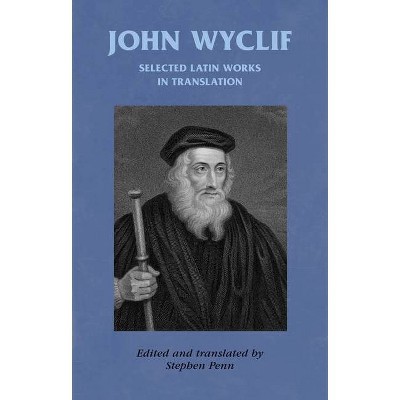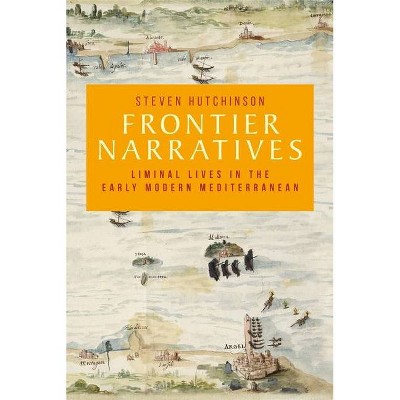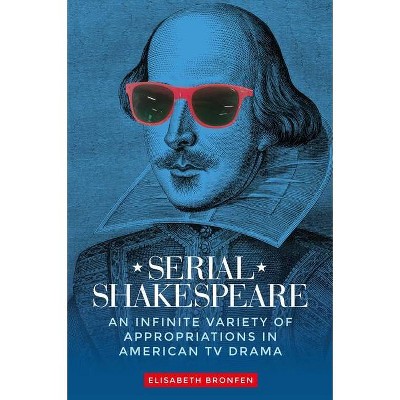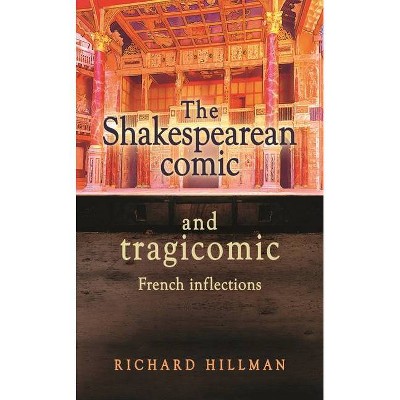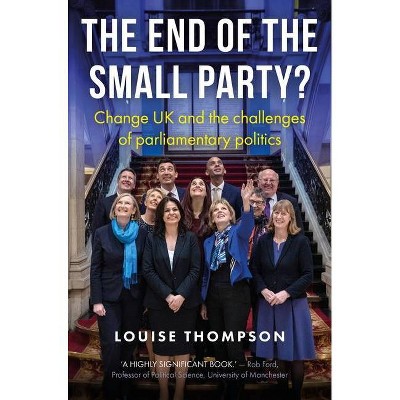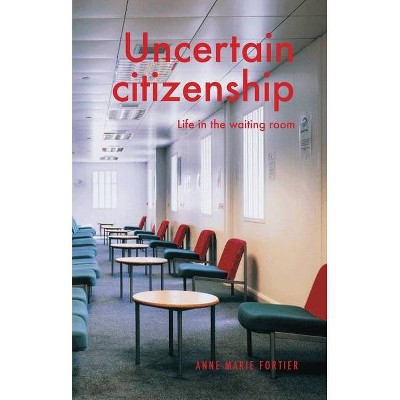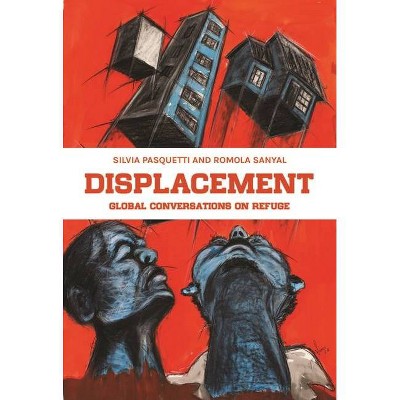The Spanish Quinqui Film - (Manchester University Press) by Tom Whittaker (Hardcover)
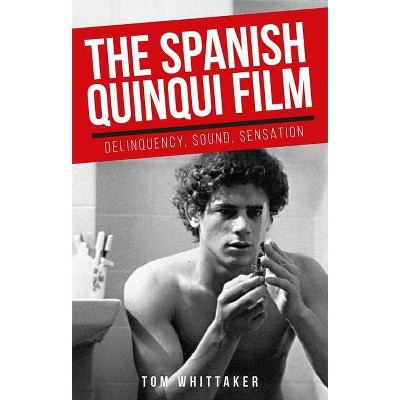
Similar Products
Products of same category from the store
AllProduct info
<p/><br></br><p><b> About the Book </b></p></br></br>This is first English-language study of <i>cine quinqui</i>, a cycle of Spanish delinquent-themed films made in the 1970s and 1980s. Exploring how the films reflected the auditory experience of marginal youth cultures during this period, the book casts new light on the criminological, economic and political fault lines of Spain's transition to democracy.<p/><br></br><p><b> Book Synopsis </b></p></br></br><p>'Written with verve, Whittaker's study gives a shrewd account of <em>cine quinqui </em>as a register of the underside of Spain's transition to democracy. The attention to what he calls the "soundscape of marginality" also makes it a valuable contribution to the emerging field of Spanish sound studies.'<br /> Jo Labanyi, Professor of Spanish, New York University<br /> <br /> 'This brilliant study of the largely overlooked cycle of Spanish crime thrillers of the 1970s and 1980s makes a key contribution to the field of Spanish film studies and, in its careful attention to the aural as well as visual textures of the films, to sound studies more widely.'<br /> Sally Faulkner, Professor of Hispanic Studies and Film Studies, University of Exeter<br /> <br /> 'This resonant study couples the author's groundbreaking work on sound in Spanish film with sharp sensitivity to the social history of a country in transition.'<br /> Chris Perriam, author of <em>Stars and Masculinities in Spanish Cinema</em><br /> <br /> This is the first English-language study of <em>cine quinqui</em>, a<strong> </strong>series<strong> </strong>of popular Spanish films made in the late 1970s and early 1980s that starred real-life juvenile delinquents. It provides a close analysis of films by directors such as Eloy de la Iglesia, José Antonio de la Loma and Carlos Saura, as well as examining the moral panics and media debates that surrounded their controversial production and reception. The book pays particular attention to the soundtracks of the films, showing how the marginal youth cultures that emerged during Spain's transition to democracy were shaped by sound. Drawing on a diverse range of materials, from radio cassettes to criminological studies on delinquency<em>, </em>it provides a new social history of marginal communities whose voices have often gone unheard in studies of the transition to democracy.</p><p/><br></br><p><b> From the Back Cover </b></p></br></br>'Written with verve, Whittaker's study gives a shrewd account of <i>cine quinqui </i>as a register of the underside of Spain's transition to democracy. The attention to what he calls the "soundscape of marginality" also makes it a valuable contribution to the emerging field of Spanish sound studies.' Jo Labanyi, Professor of Spanish, New York University 'This brilliant study of the largely overlooked cycle of Spanish crime thrillers of the 1970s and 1980s makes a key contribution to the field of Spanish film studies and, in its careful attention to the aural as well as visual textures of the films, to sound studies more widely.' Sally Faulkner, Professor of Hispanic Studies and Film Studies, University of Exeter 'This resonant study couples the author's groundbreaking work on sound in Spanish film with sharp sensitivity to the social history of a country in transition.' Chris Perriam, author of <i>Stars and Masculinities in Spanish Cinema</i> This is the first English-language study of <i>cine quinqui</i>, a series of popular Spanish films made in the late 1970s and early 1980s that starred real-life juvenile delinquents. It provides a close analysis of films by directors such as Eloy de la Iglesia, José Antonio de la Loma and Carlos Saura, as well as examining the moral panics and media debates that surrounded their controversial production and reception. The book pays particular attention to the soundtracks of the films, showing how the marginal youth cultures that emerged during Spain's transition to democracy were shaped by sound. Drawing on a diverse range of materials, from radio cassettes to criminological studies on delinquency<i>, </i>it provides a new social history of marginal communities whose voices have often gone unheard in studies of the transition to democracy.<p/><br></br><p><b> Review Quotes </b></p></br></br><br>'This brilliant study of the largely overlooked cycle of Spanish crime thrillers of the 1970s and 1980s, the <i>quinqui </i>film, makes a key contribution to the field of Spanish film studies and, in its careful attention to the aural as well as visual textures of the films, to sound studies more widely. Its reading of Spanish culture of the critical years of rapid transformation from dictatorship to democracy is especially acute: exploring the representation of urban youth crime in these films allows Tom Whittaker to show us the shifting contours of a society in transition with lucid clarity.' Sally Faulkner, Professor of Hispanic Studies and Film Studies, University of Exeter 'Written with verve, Whittaker's study gives a shrewd account of <i>cine quinqui </i>as a register of the underside of Spain's transition to democracy. The attention to what he calls the "soundscape of marginality" also makes it a valuable contribution to the emerging field of Spanish sound studies.' Jo Labanyi, Professor of Spanish, New York University 'Focusing on the politics, ethnicity, music and voice of youthful delinquent culture of the late 1970s and early 1980s, Tom Whittaker puts flesh on the bones of the marginalised teenagers who, emerging from the fringes of Spanish cities, struck terror into the hearts of the respectable middle classes, professional politicians and media pundits. <i>The Spanish quinqui film</i> is the first book in English to shed light on the violent underbelly of the purportedly "modelic" Spanish transition from dictatorship to democracy.' Steven Marsh, Professor of Spanish Film and Cultural Studies, University of Illinois at Chicago 'This resonant study couples the author's groundbreaking work on sound in Spanish film with sharp sensitivity to the social history of a country in transition. Vivid technical analyses show the marginalised protagonists and radical practices of the <i>quinqui </i>film tradition as thrilling some audiences and threatening others - as embodying the uncontainable.' Chris Perriam, author of <i>Stars and Masculinities in Spanish Cinema</i><br><p/><br></br><p><b> About the Author </b></p></br></br>Tom Whittaker is Associate Professor of Film and Spanish Cultural Studies at the University of Warwick
Price History
Cheapest price in the interval: 120.99 on November 8, 2021
Most expensive price in the interval: 120.99 on December 20, 2021
Price Archive shows prices from various stores, lets you see history and find the cheapest. There is no actual sale on the website. For all support, inquiry and suggestion messages communication@pricearchive.us
